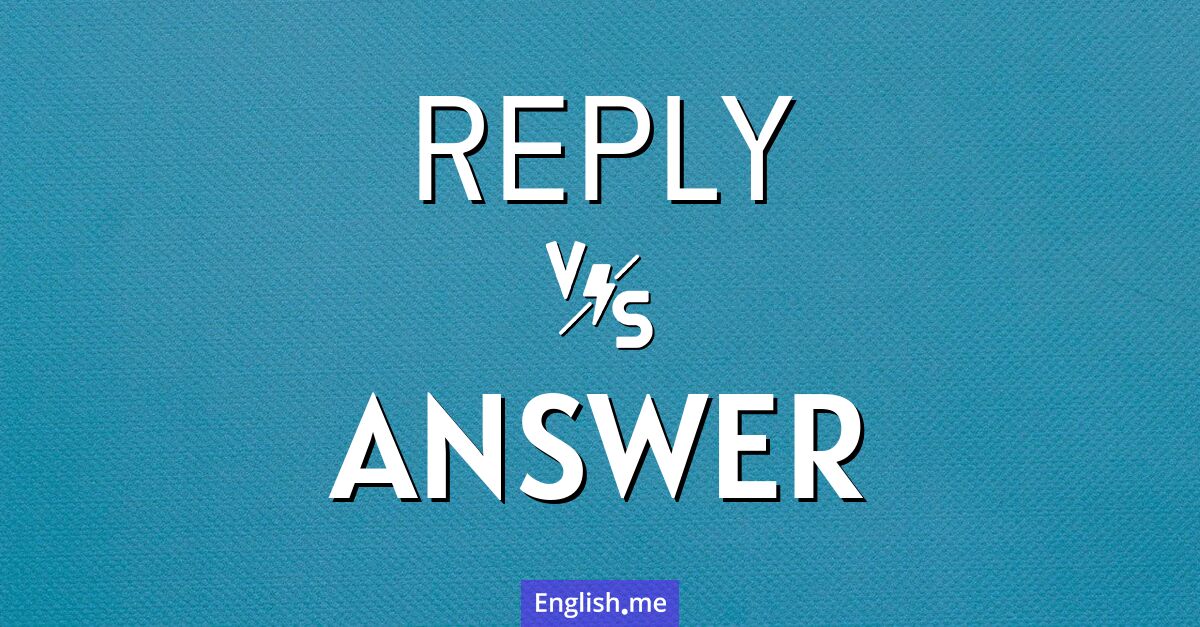"Reply" vs. "answer": what's the difference?
Reviewed and edited by  Anwar Kareem 05/04/2025, 20:09
Anwar Kareem 05/04/2025, 20:09
English.me team member

 What is similar?
What is similar?
Both "reply" and "answer" involve responding to a question, statement, or communication, and are often interchangeable in casual usage.
 What is different?
What is different?
A "reply" typically refers to a direct response to an expressed communication (such as a message or statement), while "answer" more broadly refers to the act of addressing a question, often involving providing information or clarification.
 Which one is more common?
Which one is more common?

 Examples of usage
Examples of usage
Reply- She decided to reply to his email later.
- He replied with a short message.
- Please reply to the invitation by Friday.
- She couldn't answer the question correctly.
- The teacher asked him to answer loudly.
- He gave an answer that surprised everyone.

 English
English español
español française
française italiano
italiano deutsche
deutsche 日本語
日本語 polski
polski česky
česky svenska
svenska Türkçe
Türkçe Nederlands
Nederlands